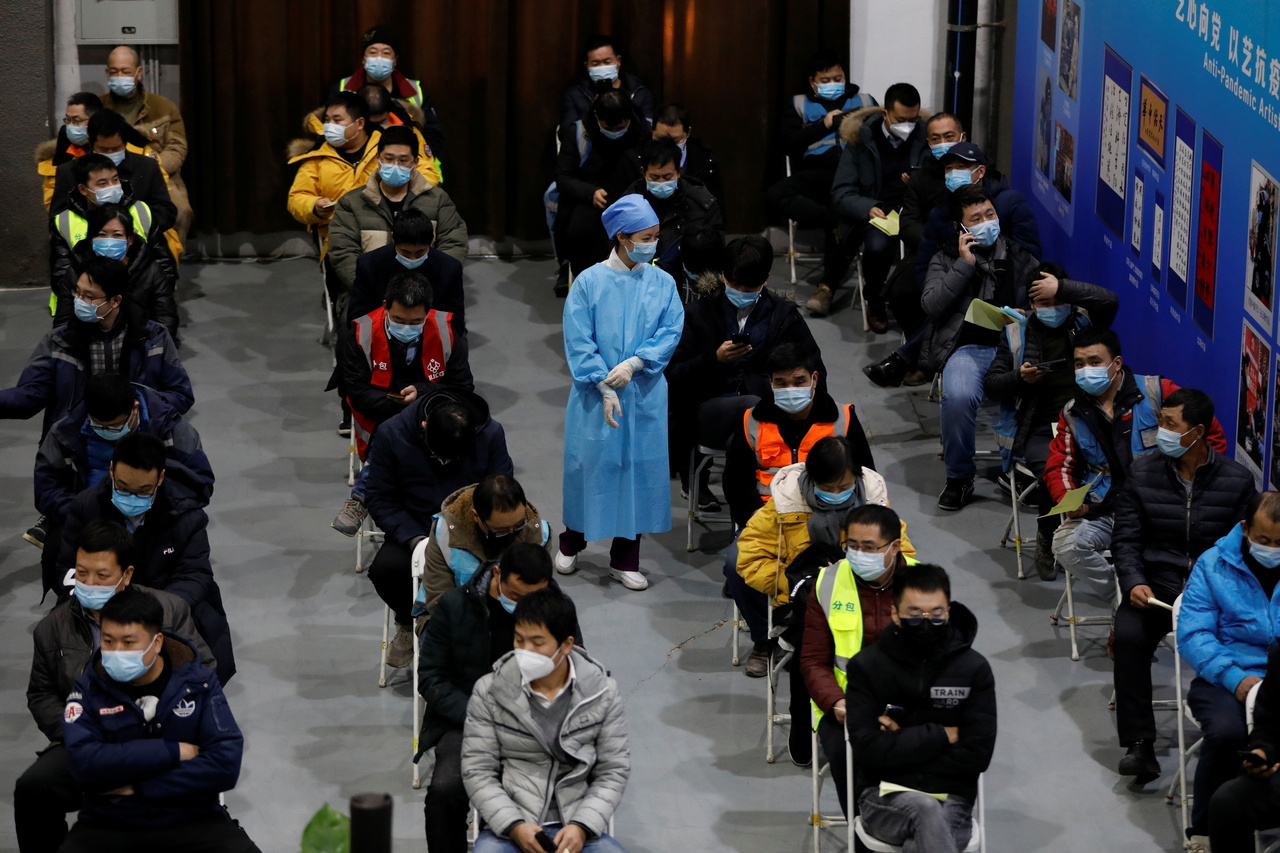Covid-19 vaccine roll-out up to speed and being ramped up: China
Sign up now: Get insights on Asia's fast-moving developments

People resting after receiving a dose of Covid-19 vaccine in Beijing on Jan 15, 2021.
PHOTO: REUTERS
BEIJING - China on Monday (March 15) insisted its Covid-19 vaccination programme is up to speed and that it is stepping up the intensity of the roll-out, focusing first on essential workers and high-risk groups.
Even as the vaccination rate has been relatively low compared with other countries, a senior official said Beijing is monitoring the situation and will continue to promote the benefits of the doses.
China aims to reach herd immunity - which means vaccinating 70 to 80 per cent of its 1.4 billion population - by mid-2022, the country's head of the Centre for Diseases Control and Prevention had said on the sidelines of a political meeting earlier this month.
China got an early start in the vaccine race, evoking emergency-use authorisation for its doses last July, but has remained focused on preventing transmission.
But as at Sunday, it has administered 64.98 million doses of vaccine, covering about 4 per cent of its population, behind countries such as Israel, Britain and the United States.
An ambitious plan to vaccinate at least 50 million by the Chinese New Year holidays on Feb 12 was quietly pushed back till after the holidays. Authorities then ramped up the rollout of vaccines, targeting "essential groups" such as frontline healthcare workers, drivers and service staff, who could serve as vectors for the disease.
"The current vaccination work is being promoted steadily and in an orderly manner," said Mr Li Bin, deputy director of the National Health Commission, in response to a question from The Straits Times.
"Regarding the issue of inoculation willingness, we have been very concerned about the vaccination work... We will vigorously promote the vaccination work and continuously improve the vaccination level of the masses," he added.
Earlier this month, a senior health adviser said China plans to vaccinate 40 per cent of its population by the end of June, or some 560 million individuals, which means it would need to administer an average of four million shots a day to meet the target.
In spite of a head start, China has been met with a hesitant population unwilling to get inoculated unless it is essential for work or school: The government has said the doses are for the "informed, agreeable and voluntary".
Many have dragged their feet because the domestic situation appears to be under control, while others are hoping for more information about what is a relatively new vaccine, Mr Li told a press conference on Monday.
But while the domestic situation may be under control, there is always the risk that an imported case could quickly spread into a local cluster, said Mr Li.
He also sought to assuage fears that locally-made vaccines might be unsafe, citing multiple layers of checks during production, storage and transportation, as well as multiple checks and verification during the inoculation process.
The vaccination programme is set to be expanded nationwide, with individual provinces possibly setting up mobile clinics to facilitate the immunisation.
There have also been concerns of how China will balance its ambitious domestic plans with its overseas commitments - at least 463 million doses have been promised through export and donation.
In recent statements, vaccine makers have suggested they would be able to reach more than three billion doses by the end of the year though none of the approved producers have detailed how much more capacity has increased by after the latest round of upscaling.
Mr Tian Yulong, a senior official of the Ministry of Industry and Information Technology, said: "Chinese vaccine manufacturers are still expanding, and with the continuous release of production capacity, the output will gradually increase."


